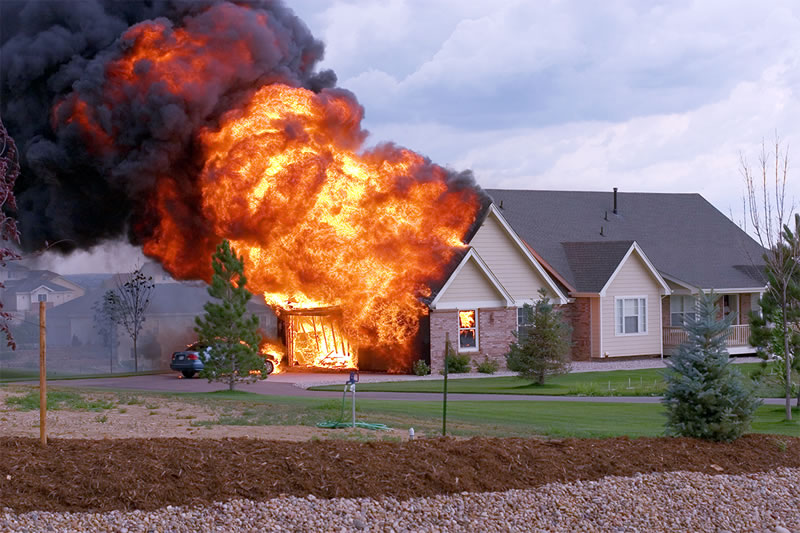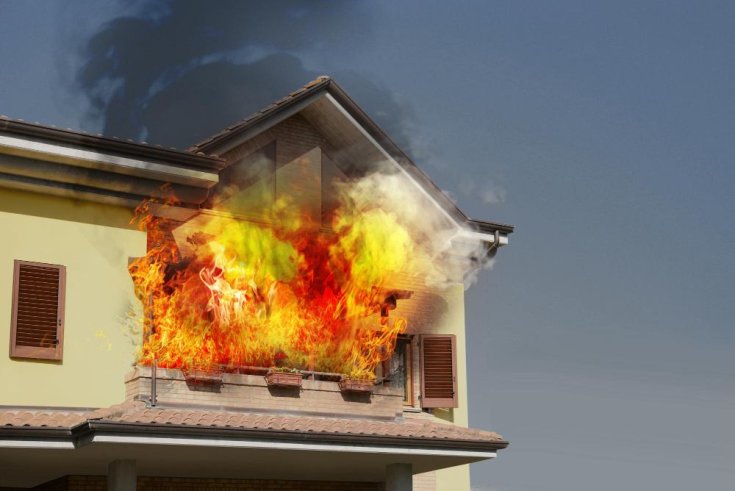404-900-3852
15-45 Minutes Response Time
404-900-3852
15-45 Minutes Response Time
The thought of a house fire is a homeowner's worst nightmare. Beyond the immediate danger, the aftermath can be devastating, leading to property loss and posing serious risks to the occupants. Let’s discuss the top five house fire accidents and explore effective strategies for prevention. Additionally, we'll touch on the importance of water damage cleanup, restoration, and removal in the event of a fire-related incident.


How To Prevent Water Damage from Leaking Appliances Water damage from leaking appliances can wreak…
 December 11,2023
December 11,2023

Precautionary Measures to Prevent a Fire on Your Home Home and business fires are awfully…
 December 06,2023
December 06,2023
Electrical fires are a leading cause of house fires. They can originate from faulty wiring, overloaded circuits, or malfunctioning electrical appliances. To prevent electrical fires, it's crucial to conduct regular inspections of your home's wiring, address any issues promptly, and avoid overloading outlets. Consider hiring a qualified electrician to assess your electrical system periodically, especially in older homes.
Prevention Tip: Install circuit breakers and use surge protectors to prevent electrical overloads. Unplug appliances when not in use and replace damaged cords immediately.
The kitchen is a hotspot for potential fire accidents, with cooking-related incidents being a common cause. Grease fires, unattended stovetops, and malfunctioning kitchen appliances can quickly escalate into a dangerous situation.
Prevention Tip: Never leave the kitchen unattended while cooking, keep flammable materials away from the stove, and have a fire extinguisher easily accessible. Regularly clean kitchen appliances and exhaust systems to prevent grease buildup.
During colder months, heating equipment, such as furnaces, space heaters, and fireplaces, can pose a fire risk. Malfunctioning or poorly maintained heating devices can lead to tragic consequences.
Prevention Tip: Schedule regular maintenance for your heating equipment, keep flammable materials away from heating sources, and ensure proper ventilation. Use space heaters with built-in safety features and follow manufacturer guidelines.
Smoking materials, such as cigarettes, pose a significant fire risk, especially if not handled responsibly. Improperly discarded cigarette butts or smoking in bed can lead to disastrous consequences.
Prevention Tip: Avoid smoking indoors, especially in bed. Use deep, sturdy ashtrays for cigarette disposal, and ensure that cigarettes are fully extinguished before discarding them. Never smoke while drowsy or under the influence of alcohol.
Household appliances, if not properly maintained, can malfunction and spark fires. Dryers, dishwashers, and other appliances with heating elements are particularly susceptible.
Prevention Tip: Regularly inspect and maintain household appliances. Clean lint filters in dryers after each use, and ensure that appliances are in good working condition. Replace or repair faulty appliances promptly.
While the primary focus is on preventing house fires, it's crucial to be prepared for the aftermath in case an unfortunate incident occurs. Firefighting efforts often involve water, leading to water damage that requires immediate attention.
Water damage cleanup is the first step in mitigating the effects of firefighting efforts. Excess water must be promptly removed to prevent further damage to the structure and belongings.
Action Tip: Engage professional water damage cleanup services equipped with advanced equipment to extract water and moisture from the affected areas.
Once the water is removed, the restoration process begins. Water damage restoration involves repairing and restoring damaged structures, such as walls, floors, and ceilings.
Action Tip: Hire experienced professionals at Tidal Wave Restoration for water damage restoration to ensure a thorough and efficient process, preventing long-term structural issues and mold growth.
Water damage removal involves eliminating any remaining traces of water and moisture from the affected areas. This step is crucial to prevent mold growth and further structural damage.
Action Tip: Choose a reputable water damage removal service that employs specialized techniques and equipment to detect and eliminate hidden moisture, ensuring a complete restoration.
Preventing house fires requires a combination of awareness, diligence, and proactive measures. By addressing the root causes of potential fire accidents and implementing preventive strategies, homeowners can significantly reduce the risk of fire-related incidents. In the unfortunate event of a fire, quick and efficient water damage cleanup by Tidal Wave Restoration will help minimize further damage and restore the home to a safe and habitable condition.